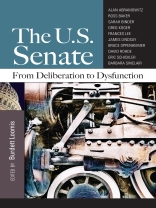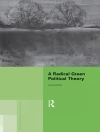With an avalanche of scholarship on the House, it can be tough to balance out coverage in a typical Congress course with appropriate readings on the ‘slow institution.’
Offering top-notch research geared to an undergraduate audience, Loomis′ new edited volume represents a broad picture of the contemporary Senate and how it came to be. While addressing issues of delay, obstruction, and polarization in a variety of ways, the scholars in this collection are not proposing a reform agenda, but instead, explore the historical and political contexts for how difficult it can be to change a non-majoritarian, highly individualistic institution. Students will come away from these chapters with a much greater appreciation of the Senate′s unique combination of tradition, precedent, and constitutional mandate.
Содержание
The Senate at Mid-20th Century — Eric Schickler
Senate Elections and Campaigns, 1960-2010 — Alan Abramowitz
Senators’ Careers and Enterprises: From Individual Operator to CEO — Burdett Loomis
Individual Senators and the Party Linkage — Frances Lee
Parties in the Senate — Barbara Sinclair
The Procedural Senate — Steven Smith
The Filibuster Then and Now: Civil Rights in the 1960s and Health Care, 2009-10 — Greg Koger
The Senate and the House: Bicameral Relations, 1960-2010 — Ross Baker
The Senate and the Executive: Nomination Politics — Sarah Binder
Domestic Policy: The Politics of Energy — Bruce Oppenheimer
The Senate and Foreign Policy — James Lindsay
The 21st Century Senate — David Rohde
Об авторе
Burdett A. Loomis is professor of political science at the University of Kansas. A former American Political Science Association Congressional Fellow and recipient of a Kemper Teaching Award, he has written extensively on legislatures, political careers, interest groups, and policymaking.












